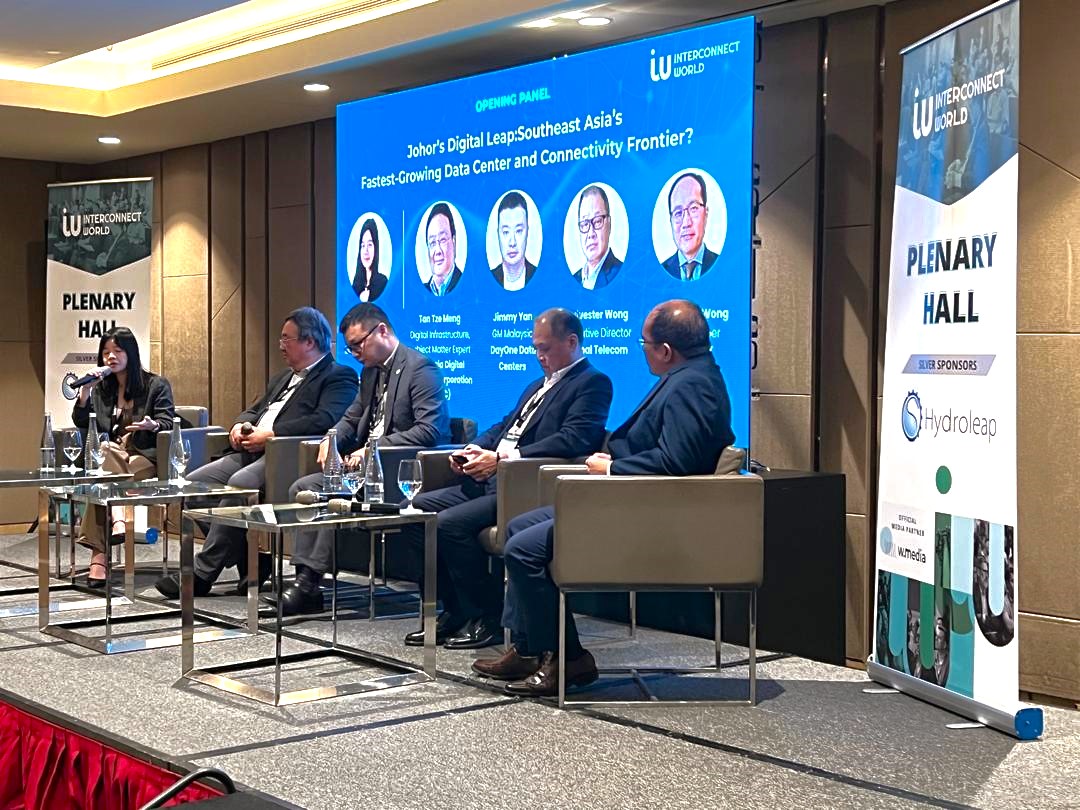Transparent government-business dialogue and reasonable transition periods are essential during policy shifts, panelists of a panel discussion emphasize during the Johor Interconnect World Forum held in Johor Bahru on 8 July. Elaborating, Renee Ho, Director, Tax, Deloitte Tax Services Sdn Bhd, who acted as moderator, said: “These mechanisms provide policy predictability, giving businesses the time they need to adapt their operations—ultimately preserving investor confidence and ensuring continued interest in Malaysia as a digital investment destination.”
She added that while Malaysia has made a strong start in attracting digital infrastructure investments, moving forward, sustained public-private collaboration will be essential to enhancing national competitiveness and driving inclusive growth across Malaysia and the wider ASEAN region.
Besides that, all the panellists agree that clear policies must be communicated to inspire confidence in the state among the many international players as this would impact their investment decision as to whether to invest or expand their current operations. Opinions vary however on whether the increased electricity rates which took effect on 1 July and had affected data centers the most, were justified.
The panellists of the discussion entitled “Johor’s Digital Leap: Southeast Asia’s Fastest-Growing Data Center and Connectivity Frontier” were Jimmy Yan, GM Malaysia, DayOne Data Centers; Tze Meng Tan, Digital Infrastructure, Subject Matter Expert, Malaysia Digital Economy Corporation (MDEC); Sylvester Wong, Executive Director, Global Telecom; and Weng-Yew Wong 王荣耀, Board Member, DECIX-JBIX Malaysia.
The forum also suggested a harmonization or synchronization of some of the policies so that “whoever is comfortable doing business in Singapore will feel the same about Malaysia. For example, if data protection policies are synchronized, “we would be comfortable having each other’s data hosted in each other’s country.” The forum acknowledged however that this collaboration is a “work in progress”.
In her summary, Ho said data centers are facing increasing regulatory scrutiny, which she pointed out, is a natural progression for the resource-intensive sector. “Feedback from both local and foreign investors in hyperscale and AI data centers (AIDCs) in Malaysia suggests that the key challenge lies in balancing national development goals with maintaining a stable and investor-friendly environment.”
Other points mentioned by Ho during her summary include the following:
- The government is prioritizing interconnectivity alongside regulatory reforms. Measures such as incentives for submarine cable investments and the recent removal of cabotage restrictions are expected to accelerate submarine cable repair—critical to ensuring network uptime, reliability, and long-term digital infrastructure resilience.
- Johor must scale its interconnection infrastructure to meet the rising demands of AI workloads. Real-time data processing for GPUaaS and next-generation compute capacity require robust, low-latency connectivity—making it a critical area of focus to future-proof Malaysia’s AI infrastructure.
- The Johor-Singapore Special Economic Zone (JS-SEZ) offers a strategic platform to position Malaysia as a digital hub for Southeast Asia. As ASEAN advances regional digital integration, Malaysia is actively aligning its cross-border data policies to support interconnected growth across the region.
In concluding, the forum is hopeful for more dialogues with the government through their upcoming Data Center Association, a platform set up to present a unified voice among industry players.
Johor Interconnect World Forum is part of the SIJORI Week series of events organised by W. Media.



